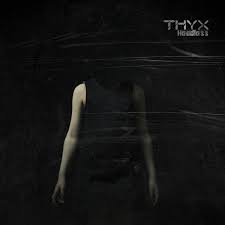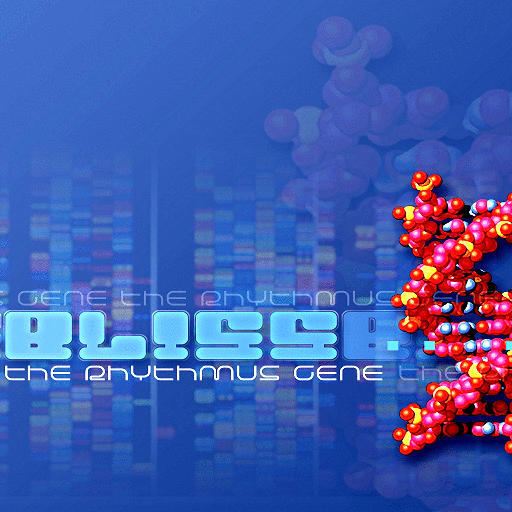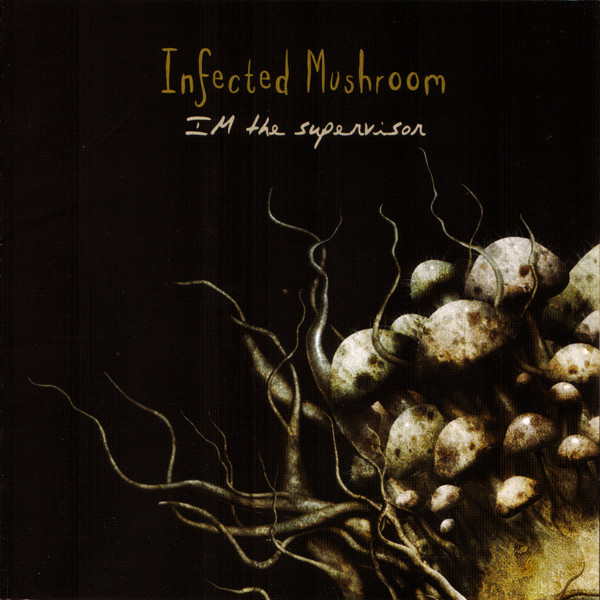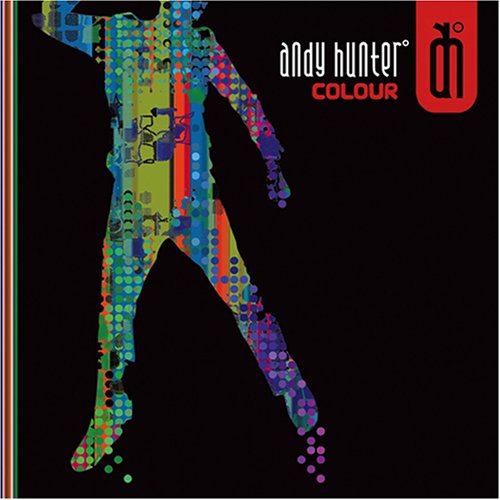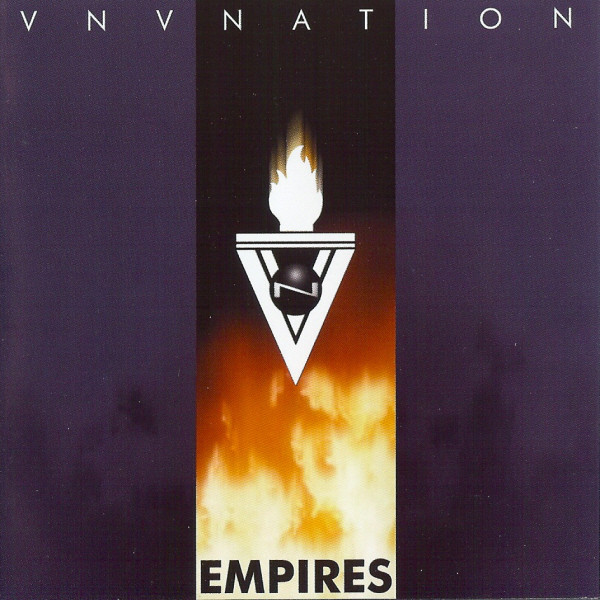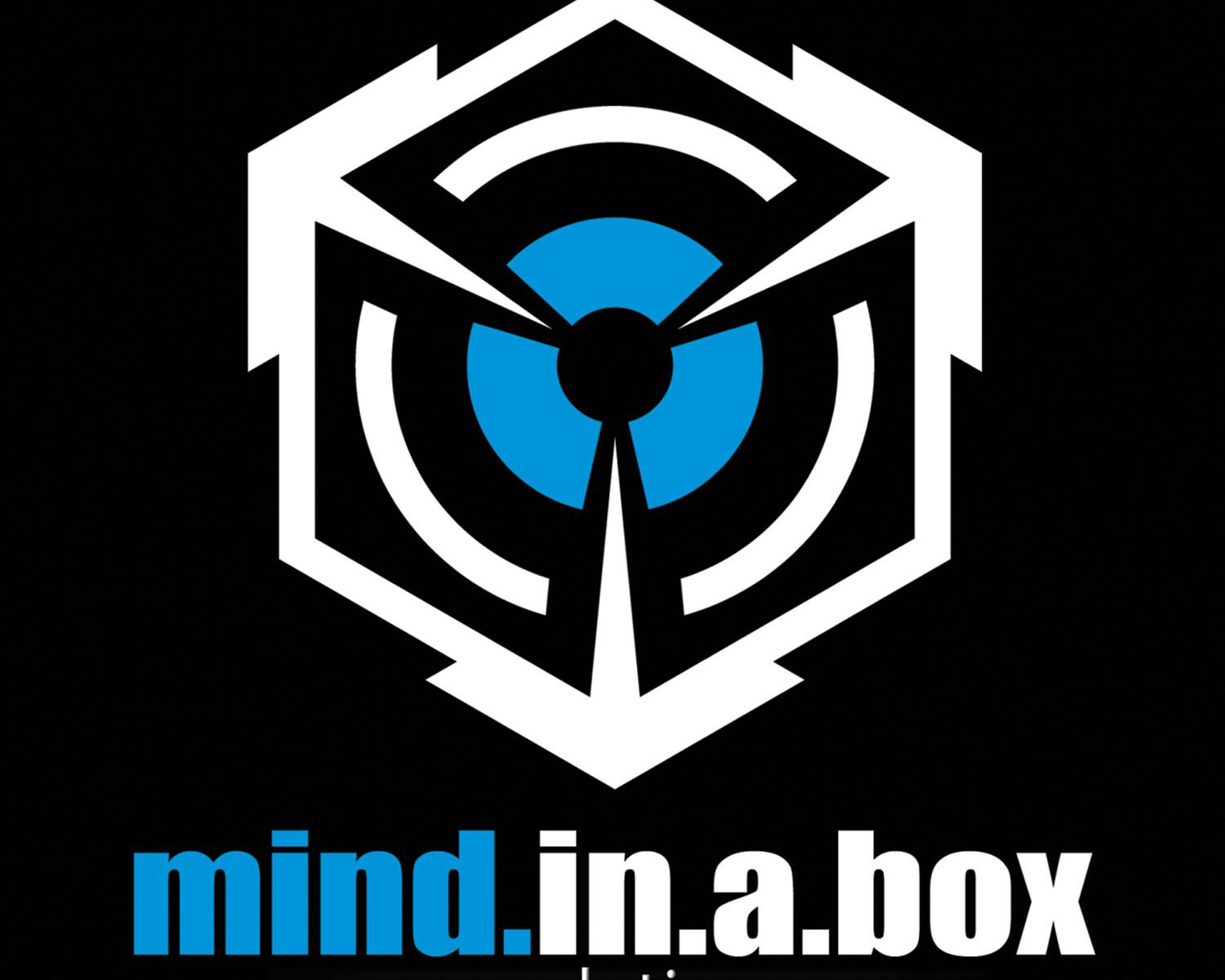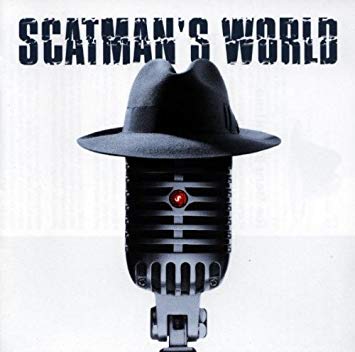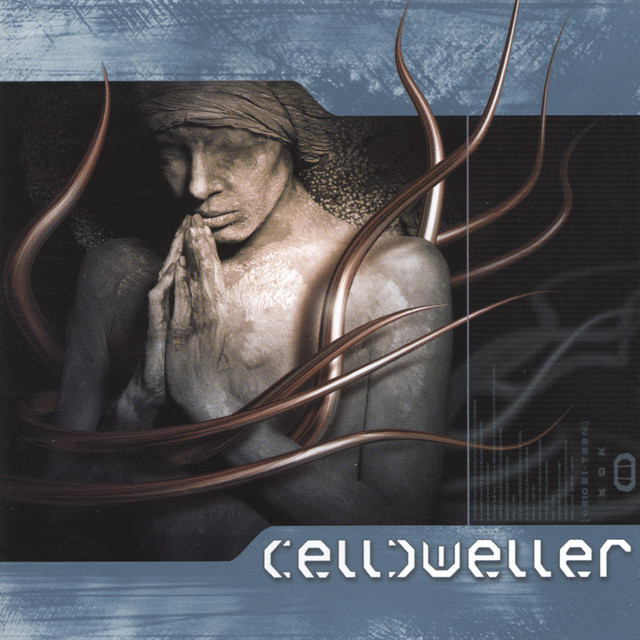Bandcamp: n/a
Soundcloud: n/a
Spotify: https://open.spotify.com/album/5CsKNGb1IuRTE8iXBZhi9Z?si=3D8pYciRQ4SzgdSbbkls-w
Youtube: https://www.youtube.com/playlist?list=OLAK5uy_naqaMwB0OLmQoLJ9eFZYjVjWO54rksPQM
Introduction: With this album review, we’ll be very nearly caught up with the THYX discography. I may come back and pick up some singles later. And of course, I still have to go back over to the latest chapter in the Mind.in.a.box story, but I had to hold out for over a year after 5ynchr0ni7e so you all cn at least wait a month.
Anyways, this album is almost definitely the highest point of the THYX discography so far. If the quality continues to climb upwards… well… I’d like to see what Poiss will do to top this (Spoilers: this album is great).
THYX – Not My Deal (7.75): Poiss start this album off slowly with this song going at a relatively slower tempo compared to much of the upbeat trance I review. But slow does not mean still. The song begins with just the bassline and a kick and it easily expresses that this song will be able to pick up some good momentum despite its slow BPM. Some of this may relate to the variety of drums added in between the primary kick and snare, but I feel the bassline itself does provide the necessary groove to keep this song moving.
That being said, as far as the music goes, this song doesn’t really have all that much variety to it. For much of the song, it’s the same bassline and melody played over each other with only slight instrumental variations. But other than that, there is very little variety to be seen. Normally, I’d find that to be a bit of a problem, but I’m a bit forgiving in this case as that bassline is certainly worth listening to for five minutes and the melody is nonintrusive. The vocals and lyrics are the main focus anyway. At least that’s how I feel for many of the songs on this album (though the musical quality gets exceptional later on as well, so we’ll split it 50/50).
The main theme of this album is overcoming bland monotony in order to find one’s true identity. Uproot the prisonous system that holds you down and instead embrace one’s destiny.
But we’re not there yet.
First, we must establish the prison. Due to the technological theming that we automatically expect from Mind.in.a.box and THYX, it can be determined that the singer of this song isn’t fully human. The biggest piece of evidence is in the first verse where the singer mentions that he believes that he’s being rebooted by a mostly unseen entity. I have to say mostly unseen because while it’s vague who exactly “they” are, it sounds like they’re the ones giving commands to the singer always promising him that they’ll only ask one more task of him before promptly coming up with a new command, trapping the singer in an endless cycle of repetitive tasks and empty promise… an empty life.
And the song takes it a step beyond simple emptiness, for this singer isn’t only losing any sense of purpose, even his identity seems to be fading away (Totally haven’t seen that before in any of Poiss’ other works). He tries to take some time to analyze himself and try and sort out who he is, but he’s unsure of what thoughts are his and what thoughts have been falsified by those that appear to control him. As long as he’s in this prison there is no way for him to know any sort of truth.
He must escape.
THYX – Don’t Get Alive (7.5): Well, that’s a bit of a nihilistic looking song title if I’ve ever seen one. Must be a great song then! And I will agree with my initial assessment that this song does fare a little bit better than Not My Deal, at least musically. The song has much more variety, allowing for a better contrast between the verses and the chorus. There admittedly isn’t quite as strong of a beat backing the song up, but the contrasting melodies between the verses and the chorus more than make up for it.
Throughout, the song, there is a strong focus on the arp, regardless of whether or not it’s a verse or chorus. But when it comes to melodies, that’s where the music shows its true emotions. In the verses, there’s one simple melody rising and falling in the background, but you have to be looking for it in order to notice it as everything else, bassline, arp, and drumbeat, are a bit louder and have the ability to drown out the melody. It still sounds good and I believe the melody does have some subtle effect on the song, though not nearly as much as it does in the chorus, which brings a second melody into the mix along with some extra ambience, bringing the song to its emotional heights.
And that’s saying something, because the vocals in this track, don’t really sound too emotional. Oh, the lyrics are still meaningful, but when it comes to delivery, the vast majority of the song is distorted to sound like it comes from a robotic AI of some sort. All humanity is stripped away from these vocals, leaving nothing but the existential call to not get alive. To not exist. I’m not exactly sure how one doesn’t get alive, but I get the feeling I’ve already failed at that. Last I checked, I had a pulse, which is pretty standard for things that are alive, such as myself I think the song is directed at a group of unawakened programs created by the speaker of this song. For the world is meaningless. Nihilism.
And as if nihilism wasn’t enough, this song has touches of loneliness as well. The singer recalls a time when they dreamt of companionship, a friend to break its lonely solitary existence. It seems at first to appear to be a simple solution to an existential problem. Find a friend. Find meaning. End nihilism. But it’s a bit more complicated than that as the speaker of this song soon finds out. Nothing changed when they finally succeeded in creating some sort of connection, some sort of friendship. But one friendship doesn’t solve one’s existential quandary. And as the speaker realized this they slipped away further into their nihilistic worldview. And as they lost all hope, they shut the world out fully, They are dead to the world and refuse to come back to life.
Kind of a depressing message for this song to display. But it’s all the more important for the arc that serve’s as this album’s purpose.
THYX – Headless (9.75): Those first two tracks were just a warm-up. Headless, the titular track of the album is a turning point in album, because from here on out nearly all of these songs are Cream of the Crop for THYX (one song ruins the streak but still, this song is a huge step up from the ones surrounding it). And this song, despite receiving a very high 9.75 rating., is not even the best of what’s to come.
This song wastes no time, dropping a heavy half time drumbeat a solid bassline and a distant background melody, so subtle that it almost feels as if it’s not there. From there THYX continually adds new instruments. In the first verse, he adds some distorted guitar riffs, an equally powerful snare to add onto the existing drumbeat. In the second verse, some hats subtly fill in the empty spaces between the kicks and snares, and there’s a second melody in the background that slowly builds up to find itself rising above the initial softer melody but still suffocated by the harsher drumbeat and bassline. Most uniquely, there’s the calmer chorus that strips all of the gritty elements from the verse and provides a breath of fresh air with nothing but clean vocals and a piano. And for the finale… Actually, let’s hold off on that finale for the end of reviewing this particular song. I feel it deserves some special attention.
The lyrics fit well into what the album has displayed so far, depicting the societal system we have in place as a trap for the individual, suffocating their identity and ideals behind lies and untruths, destroying one’s authenticity and blighting potential futures that would lead to a more satisfying lifetime. And yet, despite the philosophical horrors of the whole ordeal (at least from my point of view), I find myself still looking for the next job to follow mindless (or headless) tasks simply for a paycheck.
Ok, that’s getting a bit personal, but there’s one last thing I wanted to mention about this song. I’d held off on the finale for a reason. It’s easily the best part of the song. The slow downtrodden half time beat has plagued this song long enough. Oh, it’s not horrendous or anything but it pales in comparison to this switch-up in which the song reaches its full potential. The tempo is doubled, the guitar riffs are accelerated, the stringed ambience grow more intense and the melody that had been stuck in the background this entire time finally brings itself to the forefront of the song as it serves as the highlight of this high-energy conclusion.
There may be some musical symbolism caught in there, but I think I’ve said enough for you to make the connections on your own.
THYX – Doomed (7.25): You want something groovier? How about Doomed? Don’t mind the nihilistic title. Just focus on the upbeat groove. There is nothing depressing about this song at all, it’s just an illusion, my friend. Just an illusion…
But groove can only take a song so far. The bassline and drumbeat introduced at the song’s very beginning, do provide a very good groove, but that’s very nearly all this song has to offer on the musical side of things. There is very little change from there on out until he last chorus.
The lyrics are a slight bit odd as the lyrics in the second half seems to apply to a completely different person in the first half. I have a better handle on it now that I’ve listened to it a few times, but Poiss missed an opportunity to slightly alter the voice in the second half. I know he’s capable.
This song seems to be about the social status of the CEO of a company and those who work under him. The first verse and the chorus depict a supervisory character that gives commands from the office on the 300th floor. High above all the other workers, referred to as fools. There’s so much callus in these lyrics, taking pride in controlling the lesser and refusing to take any of the blame when anything in this little game of ruling the fools goes wrong. Not to mention the use of fools is incredibly demeaning. But then you hear the fools’ side of the story
This song, again, is more about being trapped in the societal cycle than escaping it. And it does admittedly take a nihilistic approach to the situation, thanks to the so-called fools declaring that they are doomed to remain in this game, following the rules of another, never ceasing for any sort of individuality, accepting that the paradise they desire is an unreachable illusion. If that’s not a nihilistic approach to one’s place in the world, then I don’t know what is.
Yeah, this is the track that feels a slight bit lesser than what’s to come. Makes that whole turning point thing I mentioned in the last track kind of moot. But the song’s still pretty good so it doesn’t really bring the whole album down all that much seeing as I can now say the rest of the album is truly Cream of the Crop.
THYX – Gravity (8.75): This song is perhaps the calmest song on the entire album. It begins with nothing but foreboding ambience and a simple piano melody, and for much of the first minute of this song, that’s all there is, but the simplicity here is quite beautiful in this case, and as an 8 minute song, it has plenty of time to allow the relaxation to seep in and soothe the soul (which I need all too often). The arp comes in with the beat and some strings not long into the song, but it’s all so slow paced and subtle that it doesn’t intrude on the relaxation in the slightest, which is really important for a long pathway to slumber like this one. Everything about it is subtle and even though the back half isn’t exceptionally eventful, it does have just enough development to make the song length worth its while.
There are some minimalistic lyrics to this minimalistic song as well as the calm development. Most of the song is dedicated to showing that this song is depicting a force other than gravity. Another true constant in the universe that keeps us grounded. On its own these lyrics are completely vague and seemingly existential with very little point. But thanks to the last song, we now know that there is a game that we must play in life, whether we want to or not: a game of forces. Once again, this one does seem to indicate that there’s no escaping this game. Comparable to the constant of gravity, society is merely another force that keeps us grounded.
And as the song concludes, the whispers of gravity and forces of nature, slowly fades out, distorting into something more robotic as it brings itself to a defeated conclusion…
THYX – A.I. (9.75): Headless may have been an extreme change in quality from its surrounding songs, but this is another turning point in the album. For there is an arc to this album. And while we’ve been dealing with a lot of nihilism up to this point, that’s about to end. And boy this song is the way to do it. I mean before even getting into the lyrics, the music probably gives me more chills than any other THYX song I’ve heard (prior). Even more than Forgotten from the last album (which has a sequel I’ll get to shortly).
But let’s get to A.I. first. This song is definitely among the best this album has to offer, and I’m having troubles figuring out whether or not it’s better than Headless. When I’d first listened to this song, I immediately was worried it would be tricky to figure out which song is the absolute best this album has to offer. Thankfully, a song later in the album made this choice much easier, but we’ll get to that in a little bit.
Like Gravity, this song is a mixture of simplicity and complexity. One of the only main consistent instruments is the arpeggiated synth introduced about a minute in. And I consider it to be the most iconic part of the song especially when it begins to wind down in tempo before throwing the song into double time right afterward (similar to the switchup in Headless). There’s plenty of ambience going on in the background, including some great strings that give the song some sort of victorious gravity for at the beginning. There’s also some good influences from the bass in the remainder of the song following the switchup (which is obviously one of my favorite part of the songs if you know my preferences)… though I think I actually prefer the slowing of the iconic arp a bit more. That stuff gives me chills.
I’m getting carried away a bit in a chaotic manner. The vocals are also intensely important to my enjoyment of the song and I’d argue that they’re some of the most intensely emotive vocals that Poiss has ever put out (but not necessarily the best) If the mood strikes me just right, the sheer emotion can bring tears to my eyes accentuated by the arp which is constantly giving me chills throughout much of the song beyond the first minute. Every moment of of Poiss’ undistorted vocals is sheer passion and paired with the lyrics, the song really cuts me deep.
This song is indeed a victory cry as indicated by the chilling passion that I feel throughout the experience. This is the moment, the moment, the breaking point in which one overthrows the constricting patterns that serve as the most existentially horrifying part of life (at least that’s how I feel about the constrictions; this song is very personal to my current situation). This song is about breaking free from the mold that can crush the spirit and embracing a new future of promise. I must break free of my limitations. I must find a way to escape the future of monotony. It is time for change.
THYX – Forgotten II (8): Forgotten is, unsurprisingly the sequel to Forgotten, my personal favorite from the last album, Super Vision. Like I’d said then, Forgotten should have definitely been the closer as the best song of the album. I love some good musical storytelling and really tend to gravitate towards enjoying those songs the most when looking at Poiss’ work. But on an album with so many exceptional songs that could make good finales in their own right. I don’t mind as much. Actually, this sequel gets overshadowed by a lot of the more positively emotional songs. This one, while fitting the narrative of the original Forgotten, is a slight bit more pessimistic.
Musically, this song has a lot of similarities with the original Forgotten. It still has a general upbeat vibe and continues to have the same main melody. The verses and bridge also share a lot of the same structure as the original, similar to how Mind.in.a.box’s Machine Run and Redefined had some lyrical similarities between the two songs. The mood has simply switched to something a bit darker (interestingly the opposite direction of the Machine Run/Redefined dichotomy).
Unfortunately, there is one section of the song, that completely transforms: the chorus. Now the new chorus is fine, it fits in with the vibe of the song. And I’ll admit that the original chorus’ tune might be a bit too dynamic and upbeat, for this song has a slightly more nihilistic mood. That is somewhat the problem with this song. While it makes sense as a sequel to Forgotten, it doesn’t really fit into the arc that this album has overall. I guess it’s supposed to serve as somewhat of an intermission between the fully nihilistic half of the album and the second half in which nihilism is pushed aside. Personally, I think that the second half has already somewhat started though so it still feels like an odd place to interrupt this ar. I’d rather have had it either before or after Gravity, but that’s just not the way the album is written.
Enough ranting about increasing nihilism, interrupted arcs, and track order. This song is about a narrative and I intend to take a look at what the next chapter of the Forgotten story has to offer. Last we’d left the main character of Forgotten, he’s been wandering the desert alone, sending out a signal, a message, hoping that someone out there would answer his call. Time has passed… so long that our character (which I’m almost certain is robotic at this point) has completely lost track of how long he’s been wandering (I guess, measuring temperature is more prioritized than measuring time). But even after all this time, there has been no answer to the message for one and all. No one has answered his call. There is no one else to be found on this forsaken and forgotten planet.
And so, he is defeated. The signal is disconnected. The battery is running low. There is no one here. It’s time to shut down.
Honestly, I can’t find myself accepting this as the conclusion to the Forgotten story. Even as bleak as things have become, something inside me yearns for a final installment in this desired trilogy. The story looks like it’s found its ending, but it still feels utterly incomplete. This is the most recent album of THYX as of now. I can still hope that the next album will feature a song that brings the story to a satisfying close.
THYX – The Phial (10): I wasn’t expecting give out a ten today. I do not throw that rating around lightly, but this song is not only easily the best on the album, it is an absolutely gorgeous piece of art. Like A.I. it reaches to the limit with the passion that Poiss puts into these vocals. But not only is the passion here stronger on a performance level, every single sound that this song produces works in unison, accentuating every surge of emotional connection, bringing me to tears by its end. But let’s start at the beginning.
The song follows a relatively simple feeling, with minimal instruments, slowly developing over time. However, I feel like this one is a much more emotional experience, taking everything A.I. had to offer and doing it better. The ambience here gives the song a much more chilling base. It has a shimmering feel to it as if the whispering tone is sent through an auditory kaleidoscope. This along with a very subtle pluck for a bassline serves as the main structure holding the track together.
It doesn’t take long for the vocals to come into play, as Poiss begins to bring out the lyrics with quite a dark tone, barely above a whisper. And the dark tone fits quite well with these first lyrics, depicting a dark silent world, decrepit, lifeless. There is a longing to find a light in the darkness, to hear something to break the silent shimmering plane of existence. But there is nothing but a silent starless sky. A suffocating silence that deceives those who are enveloped in it into a nihilistic mindset, disposed towards monotony. A silence that kills.
But from there, more and more elements are brought into the song in an attempt to fill the silence. It all starts with an incredibly subtly plucked bassline that gets slightly stronger over time. Whispers can be heard in the background as Poiss sings out the darkness of the soul.
And then comes the chorus. It’s here that the piano is first introduced, and it’s here that the tears begin to form in my eyes as this song infects my soul with deep emotions. The piano brings no complexity to the song, only enunciated the chord progression with a tone of beauty. But because of how starkly it stands out among the rest of the instruments, it resonates that much deeper. Though the song does also owe to Poiss’ vocals for some of its emotional impact, as they’ve risen to a higher somewhat more confident level. There are hints of a path out of the dark silence here.
For the world is a mysterious void, an unknowable enigma. But the unknowable is not necessarily out of despair. With consistent willpower to remain conscious of the world around you, you can begin to find beautiful lights in the darkness. They may shimmer. They may fade in and out. But there’s always some star hiding there, ready to shine if you’ll let it.
Let the star burn bright.
The second verse begins much like the first, though the piano has been temporarily removed. Instead more focus is given to letting other elements of the song grow in intensity. The ambience reaches new heights of glory. The bassline becomes slightly more prominent but certainly not overbearing. And the vocals have maintained their energy they’d gained in the chorus. No longer will the lyrics be spoken barely above a whisper, though there still is a truly whispering voice that echoes lyrics as it did in the first verse.
The journey continues on. The darkness and nihilistic thoughts don’t fade immediately. They will always threaten to creep back into prominence as the journey of life lengthens. We seek knowledge. We seek truth. We long to overcome the silence and look to the skies to finally find the pinpricks of light that represent the far-off stars of hope.
The piano returns as the second chorus begins, this time accompanied by a slower arp that easily matches the energy of the rest of the song. Poiss’ final lyrics of the song reach near the height of emotional conveyance as a final victorious chorus is sung out.
In order to find a new beginning and escape the shimmering cloud of silence that suffocates, we msut choose the path towards peace and light ourselves. It I then that our new sould and identity can be birthed. It is then, that we can open our mind to new visions that pierce through the darkness. It is then that we can create the stars in the sky that we long for so much.
The time has come.
An explosion of light erupts.
There are no more lyrics, for the vocals have now reached new heights of passion beyond words. I can feel the emotion resonating from within as the arp gets stronger and stronger and a drumbeat finally joins into the mix, cinematically building up for the next minute. But I think the best thing that gets this finale moving is the rolling bass. I’ve used the phrase, rolling bass, several times before, but I feel like there has never been a better time to use such a phrase as right now. This bassline is a paradoxical combination of a harsh scream smoothly easing its way through the rest of the song. At points it nearly overwhelms the rest of the song, but it never fully takes over. The light does not relent until the song reaches its close. And Poiss’ voice is there the entire while, crying out with passion. It’s a cry against the darkness that much of this album conveys. It’s a cry for victory, a cry for hope, a cry for peace.
This final minute is the absolute best minute in the entire album. There is no moment in the entire THYX discography that can match this moment. This is the best thing to come out of the THYX project. And I am unsure if it will ever be topped.
THYX – The Pain of Silence (8.5): Not to be confused with Mind.in.a.box – Silent Pain.
The last few songs have been great (especially The Phial), but the album has been feeling a little slow. The Pain of Silence changes that trend with an amazing synthwave rock song continuing on with the arc of escaping the mold. I guess, this song is breaking the mold of slow (though immersive) experiences. But I’d say it breaks the mold so far, that it doesn’t even sound like a THYX song anymore. Not saying that’s a problem. It’s not like THYX defines the epitome of quality music and anything that could possibly deviate is invalid. It’s just an unexpected genre switch. I’d try to come up with a good example of a synthrock artist to compare this song to, but I’m honestly drawing a blank, trying to find something that fits such a similar mood. I’ll admit that despite my enjoyment of the synthwave/pop/rock side of music, I’m not exceptionally experienced enough to confidently name a band or artist that perfectly exemplifies the genre switch.
But hey, maybe I could just dissect the song on its own to explain it. That’s how it’s always worked in the past. I think what makes this song stand out so starkly from the rest of Poiss’ material is that there are very few overly distorted unrecognizable instruments. There are definitely some distorted vocals (can’t escape those), but other than that, a lot of the song is made up of guitar riffs and solos played over a great varied drumbeat that switches up the mood consistently throughout the song. There’s also a few clean synths and what sounds to be the occasional choir serving for an extra little bit of melodic variety. Really, out of all of these, it’s the guitar that serves as the main draw to this song. The guitar is nearly always present throughout the entire song. In the introduction and bridge, it’s calmly picking at notes as the ambience and vocals sample take the spotlight. In the verses it spends much of its time on the downlow underneath the vocals but, it bursts out of hiding any time Poiss takes a breath. In the chorus, the guitar is allowed even more time in the forefront, allowing it to deliver high energy riffs for longer periods of time. And the outro of the song has some of the most upbeat riffs and a soaring solo on top of it all. All the while, the drumbeat is also changing energy consistently with the guitar that envelops it, finalizing the victorious drive of this song.
And victory fits, because the Pain of Silence is, again, about gaining victory over the monotonous chains that imprison us. This theme continues onward from the last song and will be present for the remainder of the album. This song is a bit more certain of the chance for victory. Yes, in the first verse it definitely focuses more on the flawed system that entraps us. It points out possible conspiracies of what’s going on in the background, what’s driving us to stay in this loop of monotony. This verse takes on the same nihilistic view of the front half of the album. However, when the second verse comes around, the focus changes from the resignation to the cycle to the struggle to escape it. And in typical Mind.in.a.box THYX fashion, it does so with a slight bit of representational lore depicting a group of people who have rebelled against the monotony, calling themselves The New Knights, a physical representation that it is indeed possible to escape the allegedly inescapable monotony.
But the meat of this song appears in the vocal sample, a speech about the modern world and how it is constantly changing. The crux of this song is that change must happen, whether we like it or not. The world is plagued with societal flaws, but when you boil all of the problems down to their source, it’s clear that the tainted hearts of mankind are to blame. No amount of money or resources could truly cure the world. You have to start by reaching out to the people, to encourage them to change the world around them individually, eventually changing the world on a global scale. This song’s message to one and all urges any who hear its call to become a part of this change. To be part of an overwhelming ocean of change that can hopefully improve the world into a better place for all.
The song is aiming a bit high. Songs hoping to reach for a utopia always seem to do so. To accomplish this goal widespread would not only be difficult but probably impossible to accomplish. I’m no sociologist or anything, but I can’t imagine that such a massive paradigm shift would go incredibly smoothly. But perhaps, it’s best to look at this song on a personal level. By trying to break our own personal cycle of monotony and embracing something greater, we can at least change our world for the better. And that’s certainly some measure of progress for now. Keep those greater aspirations in mind for the future, but for now, find out how exactly it is you want to live in the present and focus on achieving that. Honestly, this album is serving more as a pepe talk to myself more than anything else at this point.
THYX – No Place For Me (8.25): It’s clear from the last few songs, that this arc has exited the initial cyclical monotony that dominated the first half of the album, The Phial being the initial glorious breaking point and The Pain of Silence continuing to illustrate some of the resistance one will face during this escape (though not abandoning the hope that the escape is very much possible and worth it). Now that the mold has been established to be broken, one must wonder what’s next. Where does one go from here? Judging from the title of this song, that question isn’t too easily answered.
I think that of the many songs of this album, this one would probably have fit into the Mind.in.a.box story the best. I’m not just talking about the lyrics (though admittedly, Black’s initial plight after being freed from White’s control does somewhat relate to this song’s theming), but the musical style also feels a lot more similar to the general feeling of most Mind.in.a.box songs. Perhaps it just seems that way because this song finally has a groovy technological upbeat style in comparison to the last several, which were either fitting an immersive calm vibe or pushing the limit to what seems like an entirely different genre. This song, however, spends its entirety catering to the classic technologically arpeggiated synths and a few short melodies here and there.
As for the lyrics, this song homes in on the largest source of difficulty one might have when trying to move forward in life after escaping the cycle of monotony. Where does one go next? In this world so focused on making the next dollar, how does one truly escape without turning back to the monotonous nightmare that one can’t feel complete in. The singer in this song knows he mustn’t give in and return to the darkness from whence he came, repeatedly depicting it as a nightmare, but he has no idea where else he could possibly go.
One can escape the monotonous nightmare but that doesn’t necessarily make the life that follows an easy one.
THYX – Free (9.5): Fittingly, after an album full of struggling to escape, we conclude with a song titled Free: a beautiful fitting closer to this album (I would have also accepted The Phial as an ending, but that might just be because I love The Phial so much). Free returns to a relatively calmer feeling that was so prominent in the middle third of this album, From Gravity to the Phial. It still maintains a slight bit more of that technological feel similar to the last song, with a heavy focus on an echoing bassline, which over the chorus of the song, will evolve significantly throughout, growing stronger in sync with a few piano chords as it builds up towards a lightly funky beat in the second half. There are some other more technological elements developing here as well, most noticeably in the second half. Plus, the most distorted vocals on the album round out the technological side of Poiss’ work quite nicely.
But like I said, this song embraces some of the calmer elements of this album as well. Much of the calmer elements of this track work in the background behind the bassline drumbeat and incredibly distorted vocals. I’d already mentioned the piano that accompanies the drumbeat, and while piano may be a significant instrument, It’s not necessarily my favorite in this case. I may slightly prefer the stirngs introduced about 2 minutes in as they rise along with the vocals in preparation for the sl8ightly more upbeat second half of the song. It’s one of the more beautiful moments of this song.
Free concludes the arc this album had developed from the very beginning. Now that the mold has been broken and the fog has been cleared, there is nothing left to do but to figure out where to go next. No Place for Me somewhat brushed on this, though it admittedly didn’t have a very positive outlook on the future. Free takes a second glance at the situation and looks forward to the future in a more positive light, vowing to follow a new destiny without letting the past weigh down on the present. Combining all that we’ve heard before and reaching a satisfying ending to the vague narrative this album possessed, this song masterfully summarizes the transformation that this album desires to convey: You can escape the monotony. It won’t be easy, but the struggle is worth it. Life is worth it.
So, go and live.
Conclusion: This is currently the best album I’ve reviewed so far. Not only does it contain The Phial, one of the few songs that deserve the elusive 10/10, but there are several other songs that come ridiculously close (Headless, A.I. and perhaps Free). There aren’t really any tracks here that disappoint. Some perhaps a bit on the lower end in comparison to the rest of the album (see Doomed). Bit the arc that this album has throughout makes it one of the best albums I’ve ever heard.
I may possibly have some biases. I’m at a point in my life right now, where I’m really feeling the message of this song, suffocated by societal expectations and all. Really not sure if that’s anything worth complaining about or if it’s just better for me to suck it up and deal with what life gives me.
But someday, I shall be free.
Final Score (8.75/10)

